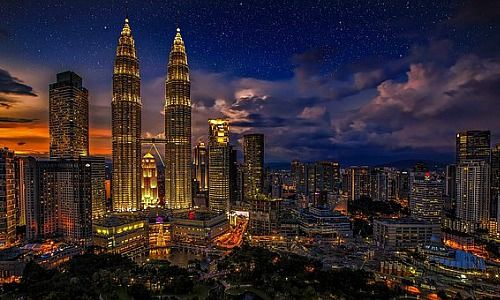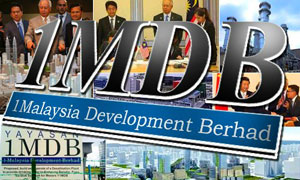When Malaysia takes to the polling stations today, voters have the chance to oust what most observers say is a corrupt government.
Malaysia, a country of 31 million inhabitants, is going to the polls on Wednesday, for the 14th time since it won independence from the U.K. in 1963. Most observers highlight the fact that voters face the choice between an allegedly corrupt prime minister incumbent and a 92-year-old who used to be the country’s longest-serving PM.
Political commentators have said that the opposition party Pakatan Harapan has closed the gap to the ruling Barisan Nasional as Prime Minister Najib Razak, 64, faces allegations of corruption at an unprecedented scale.
Neighboring Singapore as always is looking closely at the developments in Malaysia, given its geographic position at the southernmost tip of Malaysia, the sheer number of Malay workers present in the city-state and also the shared colonial past.
Torrid Couple of Years
The prime minister of Malaysia has had a torrid couple of years, having been fingered as a key player in the graft scandal surrounding the 1MDB state fund of Malaysia. As the man on whose accounts the staggering sum of $681 million resurfaced that investigators say was moved to his accounts from the 1MDB fund via the accounts of a Saudi petrol company. Looking from the outside, the question arises then why anybody would want to vote for such a person?
His opponent is Mahathir Mohamad, a 92-year-old who used to run the country for 22 years, in the name of the same party as is still in power. A man of surprising agility for sure and known as a tough nut from his years in government. In his bid to oust the incumbent PM, he joined hands with Anwar Ibrahim – and that’s where the story gets really special: Ibrahim is a talented opposition figure who was twice put in jail on sodomy charges – by Mohamad. Can such an alliance work to an extent that voters will hand it the reigns of power?
What the Opposition Says
Signs are it won’t. Observers have pointed out that the outcome may be closer than in previous elections but that the ruling party will retain its absolute majority of seats, extending the hold over the country that began in 1957. One obvious reason why power in Malaysia isn’t that easy to conquer is to be found in the electoral system.
The country employs a first-past-the-post system, similar to the one in the U.K., its former colonial master. It means that the winner takes it all in the so-called constituencies, giving a heavy advantage to the party which wins the most votes – and normally provides the countries with stable governments. The opposition says that Razak has engineered the constituencies in such a way as to maximize the chances of his party to retain power, a charge he rejected outright.
Tainted Reputation
But, to answer the question of why a prime minister with Razak’s reputation may hang on to power, it isn’t enough to look at the choice of opponents or electoral system. As so often is the case, observers and commentators should instead have a closer look at the economy. Malaysia has been reasonably successful for many years and today is a major example of an emerging market in Southeast Asia.
The rise came despite its tainted reputation as a corrupt society with an uneasy mixture of illiberal policies (for instance on homosexuality) and a rapid destruction of the country’s natural resources (logging and palm oil).
The country has a GDP per capita of almost $31,000, which compares with Indonesia’s $13,000 and Vietnam’s $2,500. The neighbor in the North, Thailand, has a GDP per capita of about $19,000. Malaysia's economy grows at an annual rate of 5 to 6 percent, outpacing inflation by a factor of about 2. Unemployment stands at 3.3 percent (February 2018). The relative wealth of Malaysia can easily be seen in Kuala Lumpur, the country's capital, where one shopping mall larger than the other vies for business.
Stable Despite the Ethnic Cleavages
Last but not least: Malaysia has been more-or-less successful in keeping peace in a multi-ethnic society, with a Muslim majority, a large and economically powerful Chinese minority as well as indigenous peoples whose way of life is endangered.
Malaysia is a stable multi-ethnic country, with a strong economy in an otherwise unruly world. Perhaps it is not that surprising that the nonagenarian won’t replace his younger incumbent?























